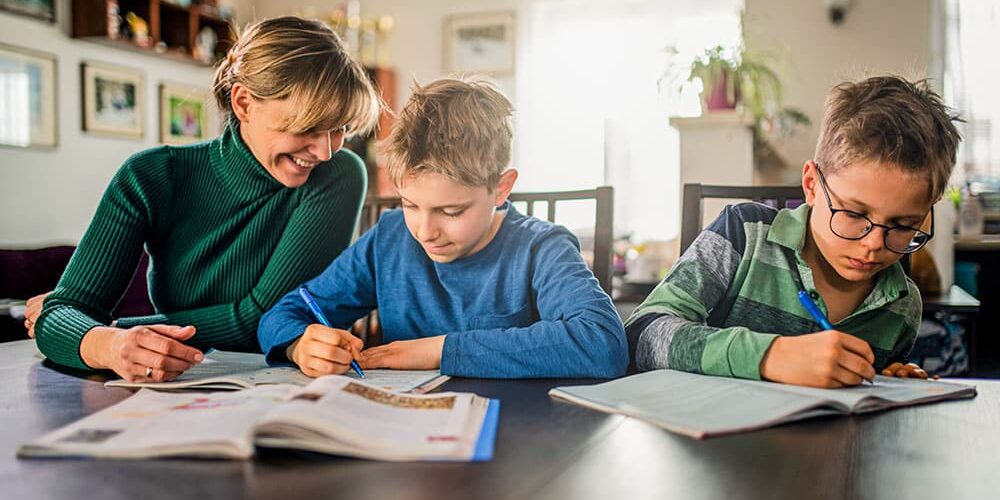Pulse of Information
Stay updated with the latest news and insights.
Homeschooling: Where the Kitchen Becomes the Classroom
Discover how your kitchen can transform into a creative homeschool hub, making learning deliciously fun for kids of all ages!
Engaging Science Experiments You Can Conduct in Your Kitchen
Conducting science experiments in your kitchen is not only an entertaining way to learn about basic scientific principles, but it also encourages creativity and curiosity in individuals of all ages. One simple yet fascinating experiment involves creating your own homemade volcano. All you need is baking soda, vinegar, food coloring, and a container. First, place the baking soda in the container, then add a few drops of food coloring. Finally, pour in the vinegar and watch as your volcano erupts with colorful fizz! This experiment perfectly demonstrates the concept of acid-base reactions and offers a spectacular visual effect that is sure to engage both kids and adults alike.
Another exciting kitchen experiment is making homemade butter. This activity not only teaches the science of emulsification and fat but also results in a tasty treat! To make butter, you will need heavy cream, a jar with a lid, and some elbow grease. Pour the cream into the jar, fill it no more than halfway, and shake vigorously for about 10-15 minutes. As you shake, the cream will eventually thicken, separate, and form butter! This experiment is a fantastic way to explore food science while also enjoying the fruits of your labor. Remember to strain the buttermilk and spread your homemade butter on some fresh bread for a delicious reward!

10 Essential Kitchen Skills for Homeschooling Success
Homeschooling provides a unique opportunity to incorporate practical life skills into your child's education, and essential kitchen skills are a critical part of that. Learning to cook not only fosters creativity and self-sufficiency but also reinforces disciplines such as math, science, and reading. Here are ten vital skills students should master in the kitchen:
- Meal Planning
- Basic Knife Skills
- Understanding Measurements and Conversions
- Food Safety Practices
- Ingredient Substitutions
- Cooking Methods (boiling, baking, sautéing)
- Timer Management
- Recipe Reading and Comprehension
- Clean-Up and Organization
- Nutrition Basics
By teaching these kitchen skills, you can help your children gain confidence and independence while reinforcing their homeschooling curriculum. For instance, when students engage in meal planning, they are not only learning to make nutritious choices but also practicing critical thinking and budgeting. Additionally, cooking together offers valuable bonding time and allows for discussions about food origins and cultural history, further enriching their educational experience.
How to Create a Curriculum That Makes the Kitchen Your Classroom
Creating a curriculum that transforms your kitchen into a classroom can be an enriching experience for both you and your students. Start by identifying the key concepts you want to teach, such as nutrition, cooking techniques, or food safety. Integrate practical lessons with theoretical knowledge to make learning meaningful. For instance, when teaching about measurements, use ingredients to demonstrate how to convert cups to ounces. This hands-on approach not only solidifies understanding but also keeps students engaged in the learning process.
Next, establish a structured plan that outlines the curriculum's scope and sequence. You might consider using an interactive lesson plan that includes various activities, such as:
- Cooking demonstrations that highlight specific skills.
- Group challenges where students collaborate on a recipe.
- Tasting sessions that incorporate discussions on flavor profiles and cultural significance.
By fostering a collaborative environment in your kitchen classroom, you empower students to share their thoughts and experiences, making the learning process even more dynamic and enjoyable.